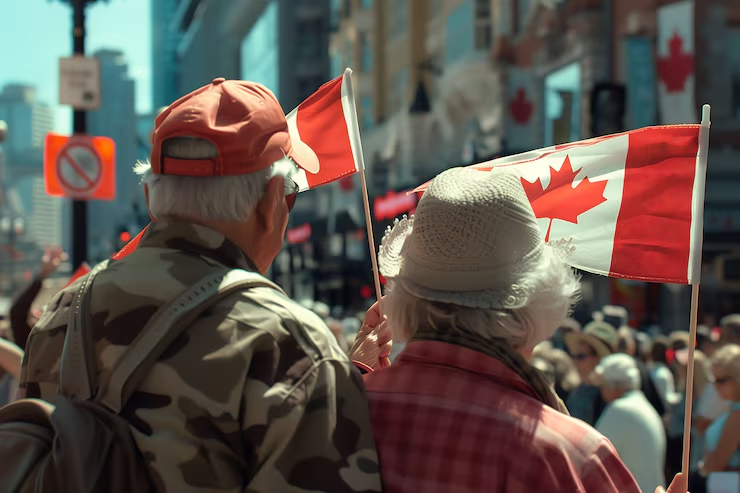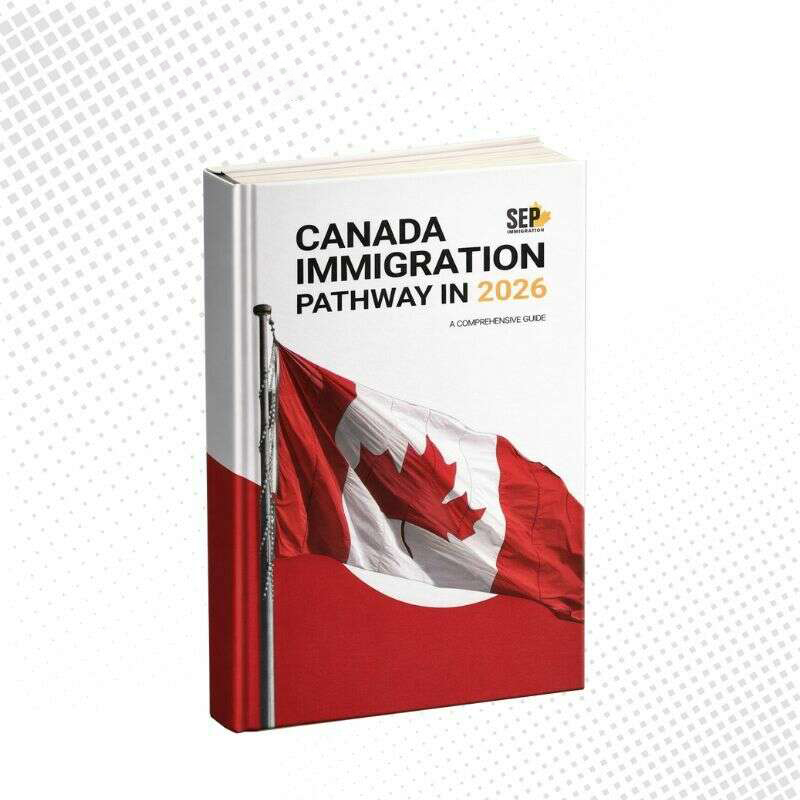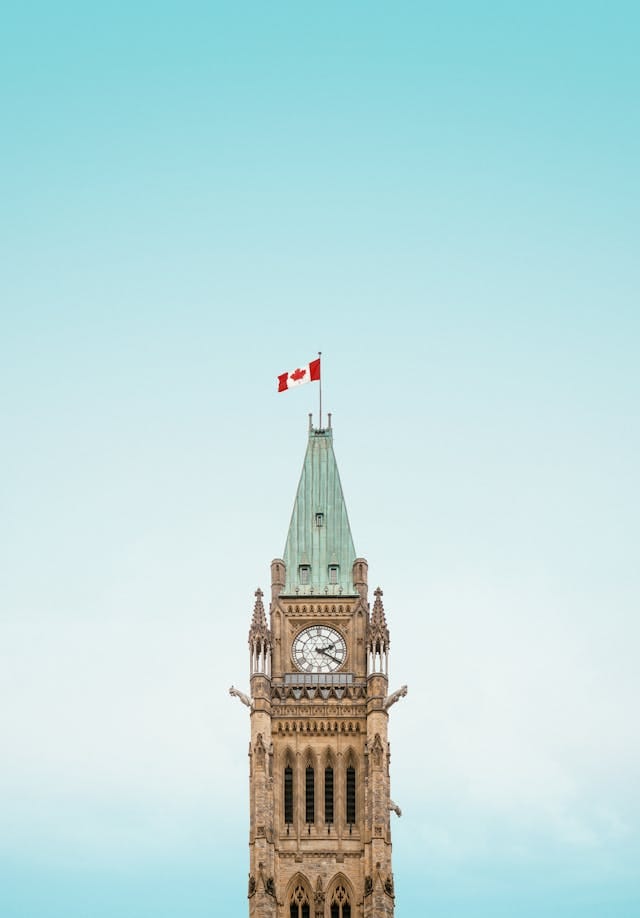
Canada’s Permanent Residence (PR) status is a highly sought-after designation for individuals wanting to live, work, and settle in Canada. A permanent resident is someone who has been granted this status by immigrating to Canada but is not yet a Canadian citizen.
PR holders enjoy many of the rights and privileges of citizens, though there are some differences, particularly in areas like political participation and certain security-clearance jobs.
To maintain PR status, you must meet specific residency requirements, including spending a certain amount of time in Canada over a set period. Permanent residents must also carry a valid PR card when traveling to or returning to Canada by commercial carrier, or apply for a Permanent Resident Travel Document (PRTD) if their card has expired.

Table of Contents
ToggleBenefits of Canadian PR Status
Canadian Permanent Residence comes with a host of benefits, making it a top immigration destination for individuals worldwide. Some of the primary benefits include:
- Access to Universal Healthcare: Permanent residents receive access to Canada’s renowned healthcare system, ensuring medical care is available without high out-of-pocket costs.
- Quality Education for Children: PR holders can enroll their children in the public school system and access lower domestic tuition rates for higher education.
- Employment Opportunities: PR status allows individuals to work anywhere in Canada without needing additional work permits.
- Social Security Benefits: PR holders qualify for various social security programs like pensions, employment insurance, and disability support.
- Pathway to Citizenship: After fulfilling residency obligations, permanent residents can apply to become Canadian citizens.
- Sponsorship of Family Members: PR holders can sponsor eligible family members to join them in Canada.
- Freedom to Travel: PR status allows free travel in and out of Canada, as long as PR holders maintain a valid PR card.
- Access to Social Services: PR holders can access various provincial and federal social services that enhance quality of life.
Permanent Residence Travel Document (PRTD)
A Permanent Residence Travel Document (PRTD) is issued to PR holders who are outside of Canada and do not have a valid PR card. You will need this document to return to Canada by commercial carrier, such as a plane or bus.
Without a PR card or a PRTD, you won’t be able to board. The PRTD is a temporary solution for those whose PR cards have expired or have been lost, stolen, or damaged while they are abroad. It is important to apply for a PRTD well in advance of your return to Canada to avoid travel delays.
What Is a Permanent Residence Card?
A Permanent Residence card is a physical card that proves you hold permanent resident status in Canada. This card is essential when traveling outside of Canada, as you will need to present it to return.
The card includes your photo and personal details, and it typically expires after five years (though some may be valid for only one year). You must renew your card before it expires if you plan to travel outside of Canada. If your PR card is lost, stolen, or damaged, you can apply for a replacement.

Processing Times for Canada Permanent Residency Visa
The time it takes to process a Canada Permanent Residency visa varies depending on the immigration program you apply through.
For most applications under popular programs like Express Entry or Provincial Nominee Programs (PNP), the process takes between 5 to 8 months. However, depending on the program, specific application circumstances, and your personal profile, the processing time could extend to 12 months.
How to Calculate Canada Permanent Residence Visa Points?
The points-based immigration system in Canada is used to determine eligibility for certain PR programs, like Express Entry. Points are awarded based on various factors such as:
- Language Proficiency: Scored based on your proficiency in English or French.
- Work Experience: Points for your number of years of skilled work experience.
- Age: Younger applicants typically score higher in this category.
- Education: Points are awarded based on the level of education completed.
- Adaptability: Points for factors like having a job offer in Canada or family living in Canada.

Renewing Your Permanent Residence Card
To maintain your ability to travel freely in and out of Canada, it’s essential to renew your PR card before it expires. Most PR cards are valid for five years, though some have a one-year validity.
It’s best to apply for renewal around six months before your card’s expiry if you have upcoming travel plans. The renewal process involves submitting a renewal application and providing the necessary documents, such as proof of residency and identity. If your card has expired while outside of Canada, you must apply for a PRTD to return.
Canadian Permanent Residency Obligations
As a permanent resident, you have the right to live, work, and study in Canada. However, you must meet certain residency obligations to keep your PR status.
You must spend at least 730 days in Canada during the last five years. These days do not have to be consecutive, and certain time spent abroad may still count toward this requirement, such as if you are accompanying a Canadian citizen spouse.
Permanent residents are also required to pay taxes and comply with Canadian laws at the federal, provincial, and municipal levels.
Renouncing Permanent Residence Status
In some cases, individuals may choose to voluntarily renounce their PR status. This could happen if they have been living outside Canada for a long time and are no longer interested in meeting residency requirements.
By renouncing PR status, you may avoid the formal assessment process upon returning to Canada. However, once you renounce, you lose all PR benefits and must apply for a temporary visa to visit Canada.
Things That a Canada Permanent Resident Is Not Allowed to Do
While PR holders enjoy many of the same rights as Canadian citizens, there are still some limitations. Permanent residents cannot:
- Vote or Run for Political Office: PR holders do not have the right to participate in Canadian elections.
- Hold Certain Jobs: Some jobs that require high-level security clearance are reserved for Canadian citizens only.
No, permanent residence is not the same as citizenship. While PR holders enjoy many of the same rights, such as the ability to live, work, and study in Canada, they cannot vote or hold political office. PR holders must also meet residency requirements, unlike citizens who can live abroad without losing their status.
Yes, PR status can be revoked if a PR holder fails to meet residency requirements, commits a serious crime, or voluntarily renounces their status. PR holders who fail to meet their residency obligation or engage in criminal activity may face an inquiry that could result in the loss of PR status.
Most PR cards are valid for five years, although some are issued for only one year. It’s important to check your card’s expiry date and apply for a new one before traveling outside Canada. Remember, your PR status itself does not expire, even if the card does.
Yes, a permanent resident can leave Canada, but they must meet residency requirements to maintain their status. If you are traveling outside of Canada, ensure your PR card is valid or apply for a Permanent Resident Travel Document (PRTD) before returning.




